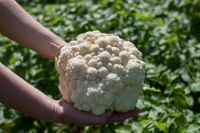Can mindfulness really reduce stress and enhance your health and well-being?
 Nearly 4.3 million U.S. adults think so. That’s how many engage in mindfulness, or ‘mindful practices.’
Nearly 4.3 million U.S. adults think so. That’s how many engage in mindfulness, or ‘mindful practices.’
Popular media refers to mindfulness as any generic process of paying attention in life (mindfully doing the laundry.) True mindfulness is more precisely defined as “being fully aware of one’s own mind, body, and surroundings by paying attention on purpose, in the present moment nonjudgmentally and without attachment.”
Mindfulness as a practice to improve health originated with research by Dr. Jon Kabat-Zinn. He demystified the traditional Buddhist form of meditation and founded the Mindfulness-Based Stress Reduction Program (MBSR) at the University of Massachusetts Medical School in 1979. Today, MBSR is used in hospitals, wellness centers, senior centers, inner city schools, colleges, elite sports programs, and rehabilitation clinics around the world. It’s proven to be beneficial for various health concerns, often as good as, or better than, medication for:
- lowering blood pressure
- managing chronic pain and illness
- enhancing decision-making
- improving depression and anxiety
- recovering from surgery, trauma, and injury
The MBSR Program helps people learn to be non-reactive to stress, pain or other triggers, and to decentralize it from the focus of their lives. This results in a cascade of hormonal effects that take the body out of high-alert mode. When the body and mind are relaxed, immune function is enhanced and healing can take place.
An 8-week MBSR program is led by a certified teacher experienced in related practices, such as mindful eating, breath awareness, gentle movement, and walking. Programs can also be designed for specific concerns such as post-traumatic stress, grief, addiction, cancer or back pain. In addition to a mini-retreat, small, weekly classes meet for 90 minutes. The course is designed to help participants establish an at-home practice that becomes habitual.
While in-person programs are ideal, there also are excellent online programs. Verify that the instructor is certified in MBSR.
Improve Your Health With Cauliflower
Known as broccoli’s pale cousin, cauliflower offers just as many fantastic health benefits as other members of the cruciferous vegetable family. Cauliflower is a great source of glucosinolates, sulfur-containing compounds that support optimal functioning of our cardiovascular, digestive, immune and detoxification systems. Sulfur, the third most abundant mineral in the body, is highly concentrated in the muscles, skin and bones. It’s essential to processes that create protein for cells, tissues, hormones, enzymes, and antibodies.
Research also shows a strong relationship between glucosinolates and the antioxidant properties of cauliflower. Some of the more colorful versions of cauliflower such as Grafiti (purple) cauliflower, have a strong profile of these two powerful plant nutrients. But don’t feel you have to go on a hunt for colored cauliflower; white, the most commonly consumed variety of cauliflower, is rich in nutrients and plays an important role in a whole foods diet.

Cauliflower can be prepared in many ways. It can be roasted, sautéed, steamed, or boiled. Studies have shown equivalent benefits from raw and cooked cauliflower, as long as it’s not overcooked. Sautéed cauliflower is a better option than boiling, steaming or microwaving, which changes its consistency depleting flavor and nutrition. To spice up sautéed cauliflower, add herbs such as turmeric, garlic, or shallot.
The Secrets to Bouncing Back from Adversity
When tough times bring you down, your ability to cope in a positive way is known as resilience. An essential skill for healthy development in childhood, resilience is critical to wellbeing throughout our lifetime. The overriding question is this: as adults can we increase our capacity for resilience in order to lead more fulfilling lives?

The answer is YES. Resilience is not a super power; it’s an ordinary skill that anyone can develop at any age. Think of it as an emotional muscle that can be strengthened. Research shows that resilience is linked to wellbeing by way of positive emotions and coping strategies (e.g.,optimism, cheerfulness, gratitude, mindfulness). Benefits include:
- a healthier immune system
- lower risk of chronic disease
- faster recovery from illness/ surgery
- improved stress management
- less depression & anxiety
Six Secrets to Pumping Up Your Resilience:
Catch It Early. One trait of highly resilient individuals is a keen awareness for when things aren’t going right. We’ve all heard doctors say “good thing we caught it early,” and that applies to stress: Identify stress early in the process and you can be proactive in managing how it (and your emotions) affect you and your health.
Stay in the Light. Optimism is the ability to look at a dire situation and assess its meaning for your life. If a significant relationship has ended, there will be grief, confusion, anger and so on. There’s also an opportunity to re-examine your needs and explore what truly makes you happy. Amid dark times, you can mentally stay in the light by using positive affirmation, hanging-out with supportive people, and monitoring what you watch and read on a regular basis.
Look at What’s Next. We all tend to blame ourselves for setbacks, worrying about what could have been done/not done differently. To bolster resilience, remind yourself that even if you made a mistake, many factors likely contributed to the problem. Focus on next steps and see how the vibe of that situation changes from desperation to opportunity.
Recall Your Victories. We’ve all had shining moments of glory – whether at work, in sports, or potty-training a child. When you remind yourself of the challenges you have overcome, you give yourself a shot of resilience.
Manage Daily Hassles. Whether sitting in traffic or waiting in an unexpected long line when you’re in a hurry, use those moments to practice coping skills (deep breathing, for example). Those mindful-skills will come more naturally to you when a crisis hits and you’ll have made a big deposit in your resilience bank.
Break Routine. Routines feel comfortable and are necessary – to a point – but rigidity breeds stress. A sense of adventure, even a simple but challenging activity, helps build resilience by enhancing skills that prepare you to handle stress. So, instead of the 1-mile fun run, enter the 5k; pass on the beach vacation and plan a guided backpacking trip; ditch date-night at the movies and take a class (e.g. cooking or scuba).
[hr]
Guiding Principles




